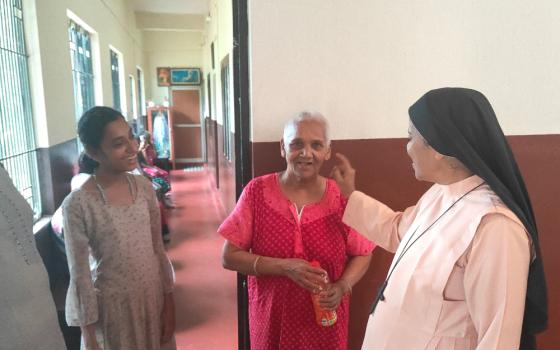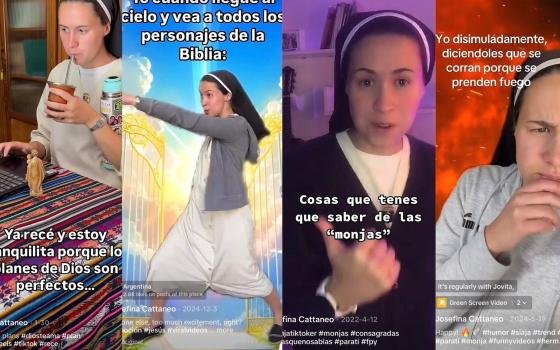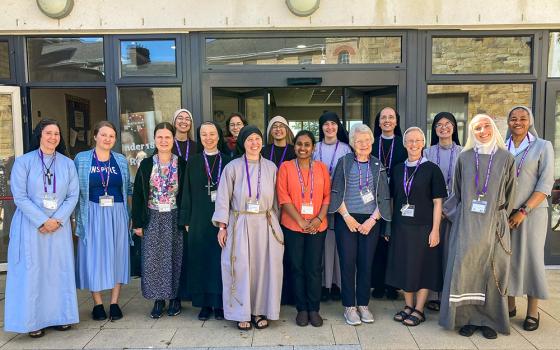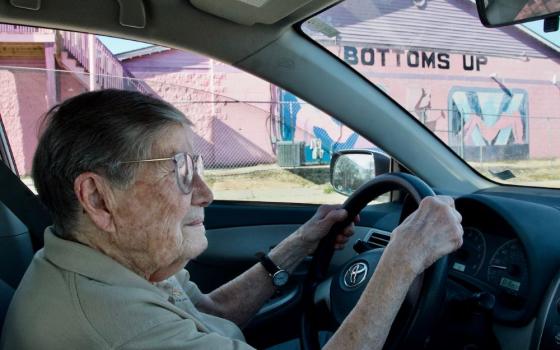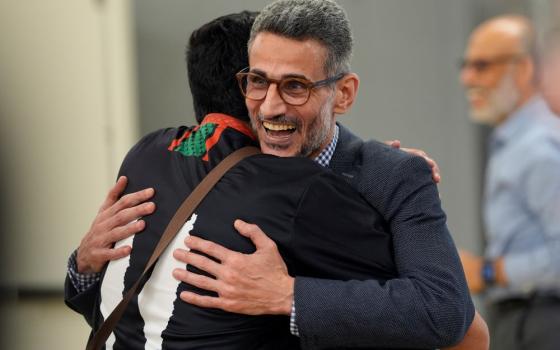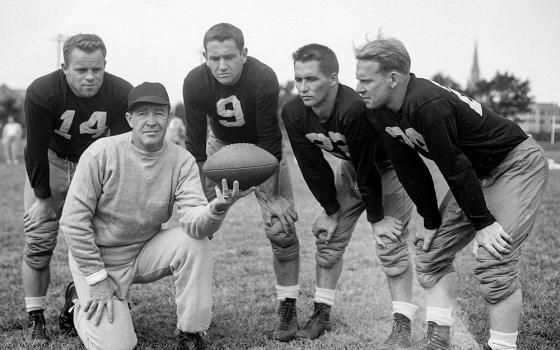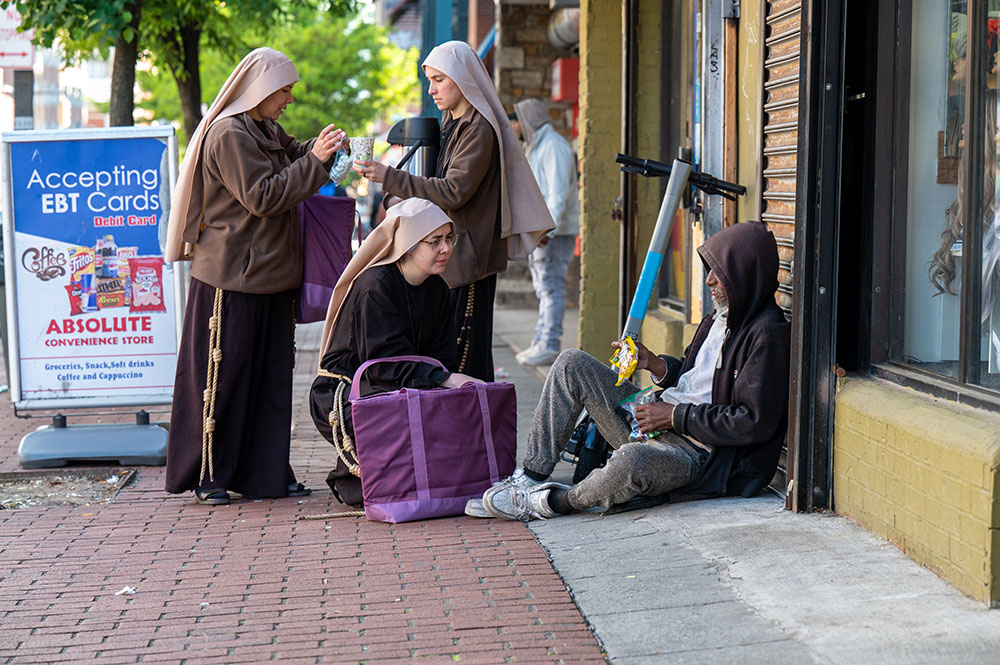
Sister Giovana of the Most Holy Name of Jesus (squatting) joins Sister Samaritan of Scourged Love (left) and Sister Maria Clara of the Crucified in giving food to a man near Lexington Market in Baltimore May 3, 2023. (OSV News/Catholic Review/Kevin J. Parks)
How many of us have heard someone elderly say, "I don't want to be a burden"? That sentiment comes from a lifetime of believing we can and should pull our own weight. Many of us started this at the age of 2: "I CAN DO IT MYSELF!" Then, school taught us that sharing answers might be cheating and we learned to think that needing help makes us look weak.
Today's readings invite us to reconsider that idea.
We begin with Moses, the great lawgiver. Let's look carefully. Moses wasn't talking about the 613 instructions we find in the first five books of our Scriptures. Rather, like Jesus would do 1,300 years later, he taught that the Law is designed to bind us to God and to one another.
Listen to Moses' message. God's law is not mysterious or highfalutin. It's not impossible to follow. He says it's already inside us, in our hearts and our mouths, adding, "You only have to carry it out."
At the beginning of his speech, Moses says, turn to God "with all your heart and all your soul." We have a sense of what he means by "all your heart." What we often misinterpret is "all your soul." In Hebrew, soul (nephesh) doesn't refer to some mysterious "spiritual" part of us, rather, it means our whole life — everything we are and do. Everything!
St. Paul offers us a meditation on what this means as he talks about Christ's life. He invites us to consider Christ Jesus as the clearest possible image of God. He calls Christ the "firstborn," implying that everything that comes after Christ from the beginning of creation reflects the divine — and humans in a unique way because we can choose whether or not to grow as images of God.
Paul tells us that, "all things hold together" in Christ. That is, as the Gospel of John (17:21-23) tells us, the purpose of our life is to recognize that we are one with God and neighbor. As Moses said, this union is part of who we are; our goal is to realize that in both the sense of understanding it and in the sense of living it out.
This takes us to Jesus' tale about the good Samaritan. This traveler saw a victim of violence and was moved. He knew what it was like to be disregarded by the elites — and the fellow on the side of the road obviously shared that situation with him. Neither of them were treated like genuine human beings. They were both what some call "redundant," people considered unnecessary, not worth bothering about.
The Samaritan saw a man in whom he recognized a fellow human being. He didn't just see him, he "had compassion."
In Greek, compassion (splanchnizomai) describes an intense emotion. It's a gut feeling of identification with another, literally to feel their need so deeply that you physically yearn for what the other needs. This compassion comprehends the unity of humanity, a reality deeper than any differences of nationality, gender, ethnicity, religious belief or anything else that separates one from another.
Advertisement
To the Samaritan, the victim was not a "burden," but one like himself, related to him long before they ever saw each other. The Samaritan made the man's need his own and gave all he could to remedy his situation.
The Samaritan fulfilled Moses' commandment to find God's law in his heart and to carry it out. He heeded God's voice with his heart and soul; in the process, his soul became larger and the victim became his neighbor. The Samaritan gave God more room to act in and through him. His relationship with God deepened because he allowed God's love to be poured out through his heart (Romans 5:5).
We listen and meditate on the Scriptures to know Christ and learn how to practice his mission today. In this Jubilee Year of learning to be pilgrims of hope, this parable hits us in the gut. When communications media bring the world into our homes and onto our phones, our sense of being neighbors has become global. Our neighbor is anyone we bother to see.
Our challenge is to relate to the suffering people in our world like neighbors, never considering them burdensome. To do that, we need to overcome our erroneous faith in individual independence.
The Trinity is a community. We reflect the divine image when we become ever more deeply related to one another, when we see each person as a part of ourselves and necessary to the well-being of God's entire creation. We know this truth in our hearts; all we need to do is carry it out.

